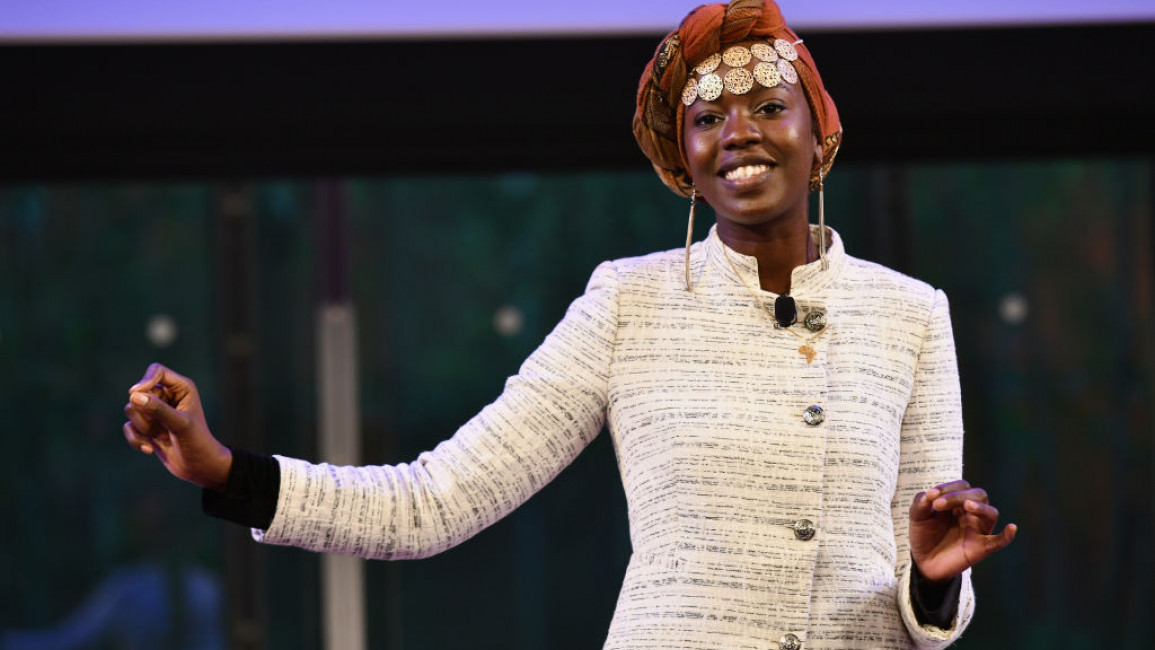'If this land could speak': Sudanese-American poet brings refugee voices to COP26
Poet and UNHCR Goodwill Ambassador Emi Mahmoud composed a moving poem about the urgent struggle to fight climate change and save humanity, shared on social media on Monday.
The poem, named “Di Baladna” (our land), asks what the land would say if it could speak.
It lists the numerous life-changing natural events, such as floods in South Sudan or fires in California, that have inflicted the planet in the last few years.
“How will the world end?” said Mahmoud, a Sudanese-American poet whose family was driven from Sudan by war.
“I don’t know and I don’t want to find out.”
The poem will be performed at the UN Climate Change Conference COP26 later this week.
Mahmoud composed the poem by following conversations with refugees in several countries, according to the UNHCR.
Mahmoud's father’s village no longer exists because of “a combination of conflict and desertification”.
“If you could stop the next tornado from hitting your home, the next hurricane from wiping out your city, the next drought from starving your people, the next lightning strike from ending your life, wouldn’t you?’ she said in the poem.
🌪 if you could stop the next tornado from hitting your home
— UNHCR, the UN Refugee Agency (@Refugees) November 8, 2021
🌩 the next hurricane from wiping out your city
🌽 the next drought from starving your people
wouldn’t you?
Thank you @EmiThePoet. #COP26 needs your voice! pic.twitter.com/KxEL5yp01y
COP26, which started on 31 October and continues until 12 November, has brought over 190 nations together to establish emission reduction targets and curb the catastrophic impacts of global warming.
Despite high hopes going into the conference and a number of carbon-cutting pledges, the world is still hurtling towards record levels of global heating.
Temperature rises will top 2.4 degrees by the end of this century based on the short-term goals countries have set out, according to research published in Glasgow on Tuesday.
This is far beyond the two-degree upper limit established in the Paris climate agreement, and the much safer 1.5-degree limit aimed for at the COP26 talks.
Activists like Greta Thunberg, who called the conference a “failure”, are campaigning for more drastic action.
Mohammed said in the poem: “We are at the precipice of possible change... a turning point that can and will define us."



